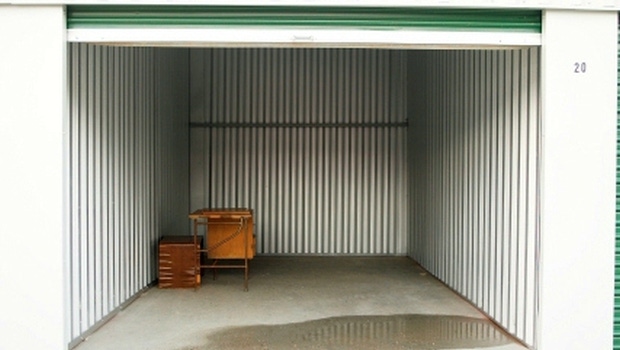If a self-storage manager runs across a unit that contains only what appears to be “garbage,” it can be tempting to declare the unit abandoned and toss the goods. Here’s why the remedies of auction or eviction are safer options.
October 16, 2016

By Murphy Klasing
If a self-storage manager discovers a unit on his property that appears to contain only “garbage,” it can be tempting to declare the unit abandoned and toss the remains. But is that prudent? Consider this common tale:
It’s a quiet spring day at Self-Service Storage and the manager is feeling great. Unit 302 is finally going to be sold. The unit has a checkered past, with a tenant who’s always been a problem. This customer habitually pays late, argues against late fees, is rude to staff, complains about everything, and has never added to the joy that comes with managing the facility. But no more. There have been enough missed payments on the space to justify the sale of the unit contents.
Unit 302 has been to the brink before, but the tenant paid up before the auction. This time feels different. Something deep inside the manager's well of experience tells her the unit won’t be rescued this time.
Late notices were sent to the proper address, and now it's time to conduct an inventory. The manager checks the previous inventory: two beds, a dresser, an old bicycle, a typewriter from around 1950 and 40-plus boxes, many of which were in disrepair. Ready to assess the contents again, she’s thinking she’ll probably be able to simply copy the old list. It’s going to be a great day. The moment of truth arrives, and the lock is cut.
The door on Unit 302 swings open, and the manager's smile—bright as sunshine—begins to slowly fade to a sad, droopy frown of despair. At some point, the tenant apparently moved out—well, mostly. What��’s left appears to be some clothing strewn about the floor, three or four boxes full of papers, and what may be a ceramic owl. The 1950s typewriter is there, but it appears to be missing the Q, the 6 and the space bar.
So now what? This unit won't sell at auction, and it’s not clear that the tenant really moved out. No problem. The unit is abandoned, so the manager's smile returns as she brings a trash container over to the unit, places the remaining items into it and preps Unit 302 for a better tenant. The end.
Only it isn’t the end. The problem tenant shows up the next day and says, “Sorry for the delay. Here’s my rent. I'll finish moving out today. I know you’ll be happy about that.” After a brief but heated exchange, the customer speeds off to see a lawyer.
A Slippery Slope
Declaring a unit “abandoned” is tricky at best. When you find a unit that appears to be filled with nothing but garbage—either on a routine lock check or during a scenario similar to the one above—the most economical and efficient determination to make is that it’s “abandoned.” This means you can clean it out and re-rent the space. The problem is once the unit has been cleaned out, it becomes very difficult to prove the leftover items were worthless and not the last map to the lost City of Atlantis.
Here’s a little tip I’ve learned from more than 90 jury trials: Juries hate “he said, she said” scenarios. When a tenant testifies that the items in the unit were jewelry and priceless baseball cards and the property manager testifies that “it all looked like garbage to me,” the jury is left to decide who to believe. That’s hard to do because inherent in that decision is determining that someone is a liar.
The jury will also get to hear how there are many statutory remedies and checklists that serve the dual purpose of ensuring the tenant has every opportunity to redeem his property, while Self-Service Storage has crossed every T and dotted every I to lawfully take the property in lieu of rent. However, in our abandonment scenario, instead of exercising any of these laws, the manager chose to throw away the contents because she thought it was garbage. I'd rather have the tenant's case in this situation.
Protect Yourself
How do you defend yourself against allegations that you discarded valuable property? You can make the situation a little brighter if you videotape the lock-cutting and unit-opening. Taking pictures of what you discover before you throw it out is also a good idea. It’s always helpful to conduct your lock-cutting procedures with a co-worker who can serve as a witness and sign off on the inventory with you.
The reality, though, is when a jury or judge hears you could have used the auction or eviction process instead, they’re going to wonder why you chose a shortcut. When the court discovers the reason for the shortcut is to save money, well, you know what juries think of companies that save money at the expense of their customers.
When in Doubt, Auction or Evict
Declaring a unit abandoned can be done safely in some circumstances. When there’s really nothing in the unit or only some scraps of nothing, the risk is low. I’d suggest taking a picture for the file in those cases as well.
Although declaring a unit abandoned is an option, your safest bet is always to proceed with an auction or eviction. I realize conducting either of these is more costly and time-consuming, but lien laws were written to protect not only the tenant but the self-storage operator.
I’ve tried a number of cases in which the tenant complained his unit was sold at auction. In my experience, juries will side with the self-storage facility if it followed the law, even if the items sold make the jurors sympathetic or sad. I shudder to think what those same juries would have done if the self-storage managers in these cases had instead declared the items “garbage” and thrown them out.
Err on the side of following the statutory remedies available to you. If not, always remember that declaring a unit abandoned can have magical consequences. Such an assertion can sometimes turn garbage into the last copy of the “Gutenberg Bible” or the Crown Jewels of the United Kingdom.
Murphy Klasing, an attorney with the law office of Weycer, Kaplan, Pulaski & Zuber P.C., has a wide range of appellate, arbitration and trial experience, successfully handling numerous litigation matters. With more than a decade of experience in the self-storage industry, he serves as counsel for Public Storage Inc. in Texas, and has defended matters involving allegations of breach of contract, code violations, employment issues, fraud, negligence, personal injury, premises liability, and theft. To reach him, call 713.961.9045; e-mail [email protected]; visit www.wkpz.com.
You May Also Like





